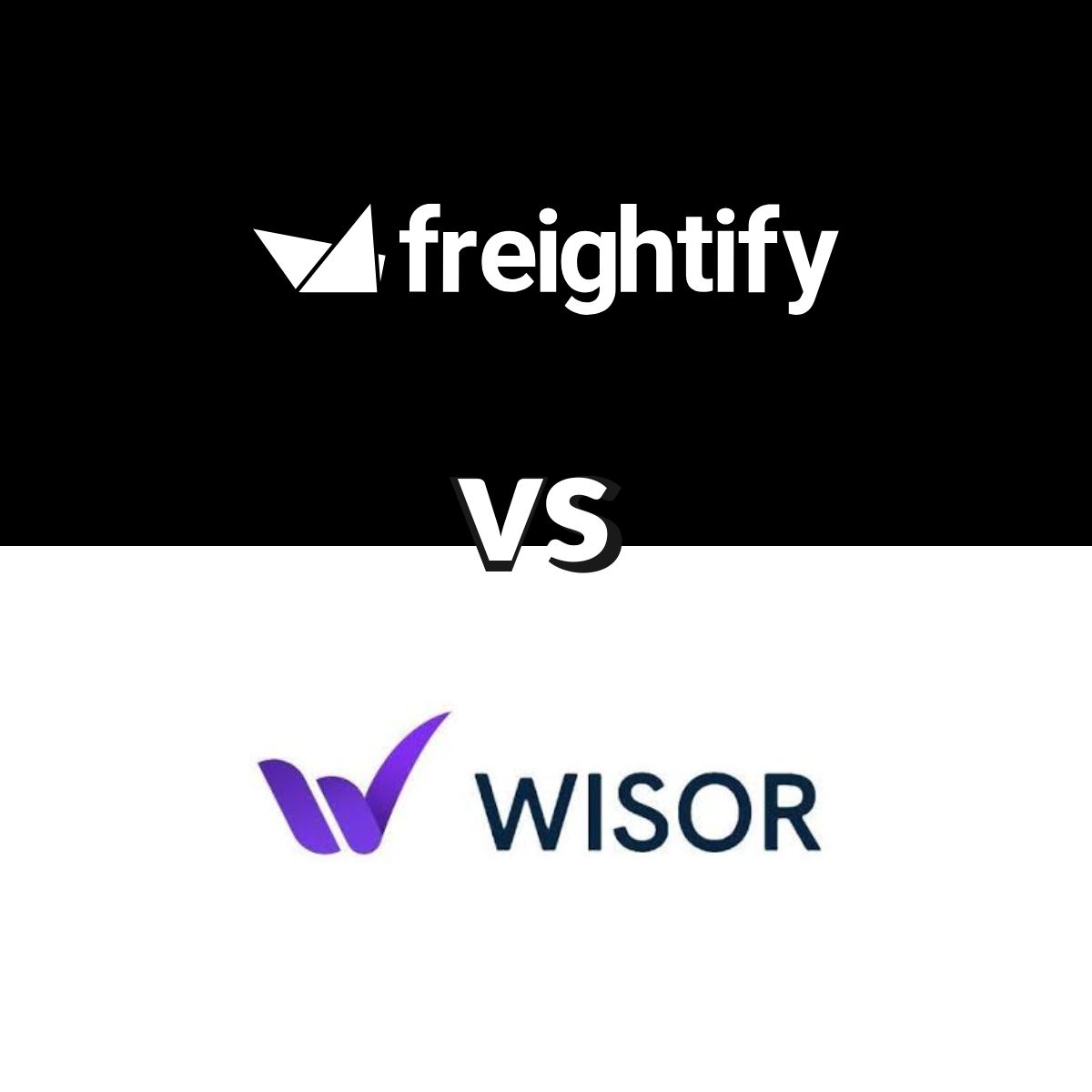Traditional freight management systems such as Excel are prone to errors and involve outdated software lacking the integration and automation required in today’s complex supply chain.
A Freight Management System (FMS) is a software platform designed to help freight forwarders, shippers, and logistics providers manage their transportation processes more effectively. It centralizes and automates key tasks such as freight planning, booking, tracking, and invoicing, enabling companies to improve operational efficiency and reduce costs.
In this post, we uncover the benefits of a modern freight management system and briefly discuss Freightify’s features that help freight forwarders stay competitive.
What Does a Freight Management System Do? Modern FMS platforms offer comprehensive tools that handle every aspect of freight forwarding, including:
Automation: Automates time-consuming manual tasks such as rate comparisons, shipment tracking , and invoicing and allows teams to focus on strategic tasks like route and service optimization, as well as customer relationship management.
Real-Time Data and Analytics: Show live updates on shipment status, delays, and transit times while generating analytics to optimize routes and improve decision-making.
Central Information Storage and Sharing: Data is stored in one centralized location for all stakeholders. Removing silos enables teams to make informed, data-driven decisions, improve customer service and streamline operations which lower operational costs, and help freight forwarders adapt quickly to market changes.
Integrations: Integrating a modern freight management system with other business systems like CRM, ERP, and warehouse management allows seamless data exchange and lowers redundancy. With systems connected, different teams (e.g., sales, and customer service) can share information effortlessly, leading to better coordination and decision-making.
Benefits of a Modern Freight Management System Software Freight management involves variables like fluctuating rates, varying shipping schedules, and the need for precise, accurate quotes. A modern freight management system (FMS) simplifies these complexities for freight forwarders to reap benefits such as:
1. Simplified Rate Management Freight rates normally fluctuate due to factors such as fuel prices, seasonal demands, carrier availability, and global market trends. Managing these shifting rates manually takes time.
A modern freight management system like Freightify solves this problem by:
Centralizing freight rate data: Centralizing freight rate data provides easy access to up-to-date pricing from multiple carriers in one place. This helps streamline rate comparisons, reduces manual errors, speeds up quote generation, and ensures accuracy. When all rates are in a centralized platform, freight forwarders can make swift, more informed decisions, offer competitive pricing, and improve operational efficiency.Providing real-time rate updates: With Freightify tool, rates are updated in real-time, empowering freight forwarders to offer accurate, up-to-date pricing. This helps them stay competitive, avoid costly pricing errors, and secure more bookings. In addition, real-time updates allow forwarders to adjust quickly to market fluctuations, optimize shipping costs, and improve customer satisfaction by delivering transparent, reliable quotes.Automated rate comparison: Freightify automatically compares rates across multiple carriers, enabling sales teams to quickly identify the best options for customers in terms of price, and transit time.By streamlining rate management, Freightify allows freight forwarders to minimize rate inaccuracies and offer competitive pricing, increasing their ability to stay competitive.
2. Automated Quote Generation While an outdated quote generation requires time-consuming manual inputs and calculations that is prone to errors and delays, a modern freight management system has an automatic quote generation tool that helps freight forwarders:
Automate the quoting process: Freightify helps forwarders generate quotes instantly based on real-time data from multiple carriers and drastically reduces the time spent on manual rate calculations.Customizable quotes: Modern freight management systems let forwarders customize quotes based on preferred transit times, shipping methods, and additional services. This flexibility improves the chances of winning business by providing tailored solutions.Instant sharing of quotes: Once generated, quotes can be shared instantly with customers via email or through the modern tool’s online portals, speeding up the sales cycle and improving customer responsiveness.By automating quotes, forwarders can handle more inquiries, improve efficiency, and increase their chances of winning new business while delivering a better customer experience through faster, more reliable service.
3. Optimized Scheduling and Booking Coordinating between various carriers, adjusting schedules based on availability, and ensuring timely bookings is overwhelming without a modern freight management tool.
Using a tool like Freightify can solve these challenges by:
Consolidating schedules from multiple carriers: The Freightify system aggregates schedules from different carriers into a centralized platform for freight forwarders to view and compare available options. This simplifies selecting the best routes, reduces time spent searching for schedules, and enables better coordination of shipments.Real-time updates on schedule changes: The system provides real-time updates on changes to carrier schedules, prompting freight forwarders to adjust bookings as soon as possible.Automated booking process: Once the optimal carrier and schedule are selected freight forwarders can book shipments directly through the Freightify platform. Seamless integration with carrier networks eliminates the need for separate bookings via email or phone, which speeds up operations, enhances accuracy, and enables faster confirmation of bookings. Freightify’s scheduling tools reduce the time and effort required to coordinate shipping arrangements, ultimately saving time and boosting customer satisfaction.
4. Integration with CRM and ERP Systems Modern freight management system integrates with Customer Relationship Management (CRM) and Enterprise Resource Planning (ERP) systems to streamline data sharing between departments like sales, operations, and finance.
Freight forwarders need such integration for:
Unified data management: Freightify allows customer data, rate information, and shipment details to flow seamlessly between systems, ensuring all departments have access to real-time, centralized data which reduces duplication and manual data entry.Improved customer experience: By integrating with CRM systems, modern freight management tools like Freightify help forwarders track customer preferences and previous interactions, improving customer satisfaction.Automated financial processes: Integration with ERP systems simplifies billing and invoicing, automating financial tasks and reducing the likelihood of errors in payment processing.These integrations improve collaboration between departments, reducing the likelihood of communication breakdowns and resultant costs.
5. Cost and Operational Efficiency Modern freight management systems such as Freightify have automation and real-time data features that lower costs and improve operational efficiency.
Freightify’s advanced Rate Management System simplifies the complex processes of managing rates, quotes, and schedules by automating time-consuming tasks like rate calculation, providing real-time data, and offering seamless integration with other business systems.
Ultimately, modern freight management systems empower freight forwarders to stay competitive in an ever-changing industry by reducing operational costs and ensuring accuracy.
Key Module Features of a Modern Freight Management System The characteristics of a fully deployed Freight Management System (FMS) help streamline operations, enhance visibility, and optimize decision-making.
A comprehensive FMS should include the following:
1.Shipment Planning and Optimization The shipment management tools help freight forwarders plan optimal shipping routes based on factors such as cost, time, and carrier availability. On the other hand, dynamic route optimization adjusts plans in response to real-time conditions like weather or port congestion.
2.Real-Time Visibility Shipment Tracking Ensures GPS tracking for real-time updates on shipment location and estimated arrival times. This feature also enables automated alerts for delays, exceptions, or changes in transit status.
3.Centralized Data and Information Sharing Centralized storage for all freight-related data makes it accessible to all team members and stakeholders.
This promotes seamless information sharing across departments including sales, operations, and finance, reducing communication gaps.
4.Automation of Manual Processes Automating repetitive tasks like rate comparison, freight cost calculation, shipment scheduling, and booking ensures reduced manual errors through standardized processes and workflows.
Partner with Freightify for Simplified Freight Management Freight management systems encourage seamless integration with Customer Relationship Management (CRM), Enterprise Resource Planning (ERP), and Warehouse Management systems for end-to-end process automation.
Modern freight systems that integrate with carrier networks to automate booking processes and manage contracts empower freight forwarders to offer quicker, more personalized responses to customer inquiries, resulting in low costs and improved customer satisfaction.
Freight forwarders need to adopt modern freight management systems such as Freightify to leverage benefits such as simplified rate management, automated rate generation, optimized scheduling, and integration with other systems to thrive in an increasingly volatile supply chain environment. Get a demo with us to know more.




















